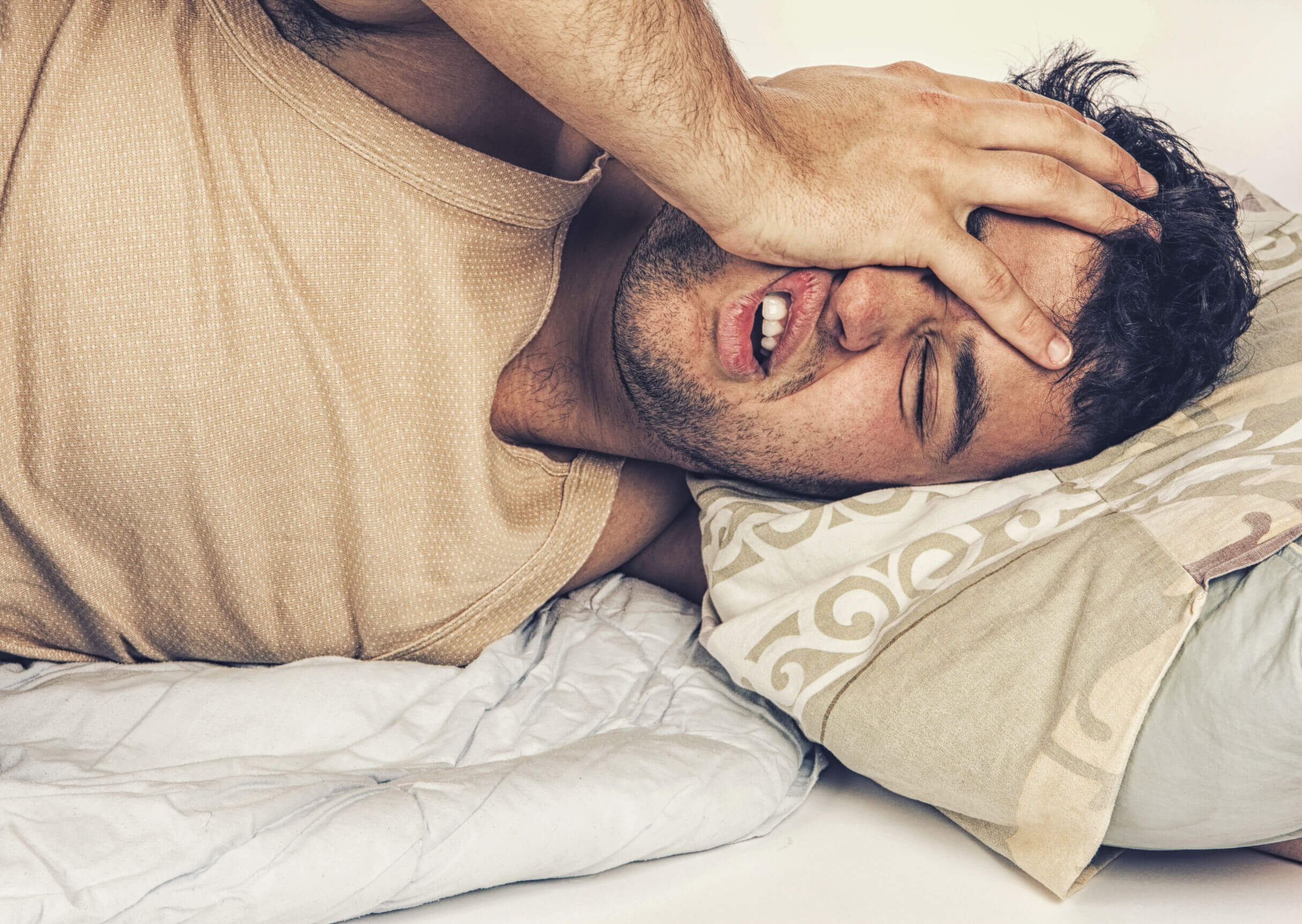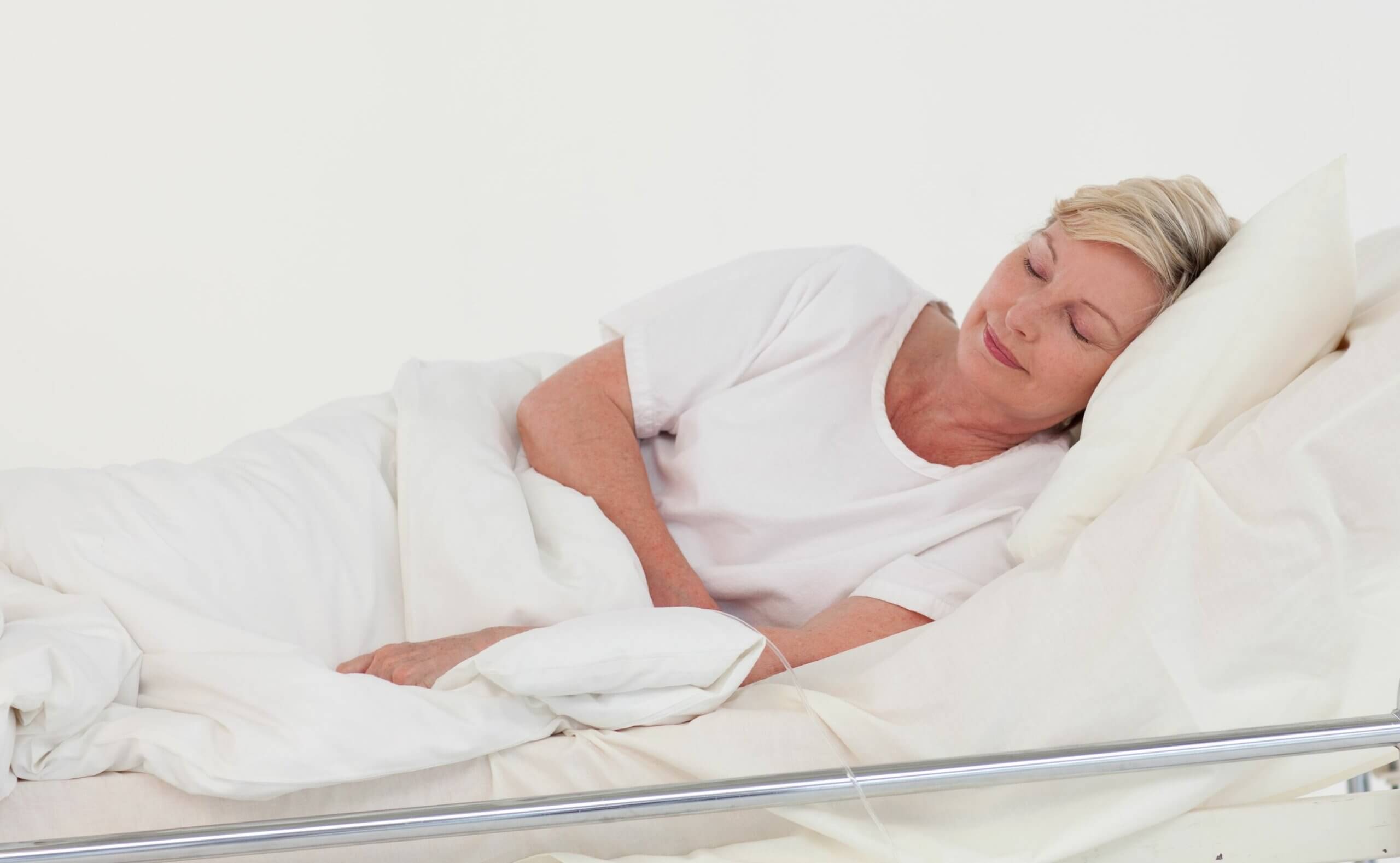Is it Possible to Make Up for Lost Sleep?

Is it possible to make up for lost sleep? Most of us would need to! Often, after a tiring day, we feel like dedicating some time just to ourselves. There are many reasons for getting to bed late. We want to watch as many episodes as possible of our favorite series, we keep checking out our social networks, or simply because it’s Friday!
Other people have to work or study, and even study into the early hours of the morning. Whatever the reason, it’s easy to get a sleep debt.
The question is: can that deficit be paid off in one night? The answer might be yes, however, sleeping to catch up on lost sleep is not the same as sleeping just to rest. Find out what science says about it.
What does it mean to have a sleep deficit?

If we think about a bank account, if you don’t want to go into the red, you have to replenish whatever you use. The same happens with the amount of time spent sleeping. If sleep debt becomes chronic, then even your whole lifetime may not be enough to recover.
According to 2016 research published in Scientific Reports, it takes four days to fully recover a single hour of lost sleep. Now, most people don’t lose sleep from time to time, they do it chronically; this means that many have a sleep deficit.
This increases the likelihood of suffering from sleep deprivation symptoms and the difficulty in making up for lost sleep hours. A study conducted in the United States by the National Sleep Foundation reveals that 73% of respondents sleep fewer than 7.1 hours a night, the amount necessary to ensure good health.
Sleep allows the body to recover, to self-heal, to repair both the heart and blood vessels. The brain also takes advantage of rest to separate important information from others, to look for solutions to be applied the next day and, moreover, to heal the body.
What does chronic sleep deprivation entail?
It’s common to think that lost sleep can be made up for over the weekend. However, those who sleep most of Saturday and Sunday will most likely have difficulty falling asleep on Sunday evenings. The deficit, therefore, will continue to the following week.
There are many ailments associated with chronic sleep loss. Among the main ones:
- It increases the risk of diabetes.
- It weakens the immune system.
- It increases the risk of developing heart disease.
- It tends to increase the levels of the stress hormone cortisol.
- It raises your blood pressure.
- Promotes excess weight.
- Leads to memory impairment.
- It causes suicidal thoughts, depression, anxiety and anger.
- It causes drowsiness, increasing the risk of accidents.
Tips to recover lost sleep hours
Not all of us need the same number of hours to restore body functions. For some, it’s enough to sleep only six hours or less, while others need to sleep nine hours or more.
A good way to figure out how many hours you need is to try to make a note of the number of hours spent sleeping and, during the day, analyze how you feel. Another way to know is to sleep until you are no longer sleepy for a few days, so that the body acquires the natural sleep pattern.
But if you can’t meet your body’s need for sleep, here’s how to recover:
- Take a 20-minute nap in the early afternoon.
- Sleep on weekends, but don’t exceed two hours after your usual alarm.
- During the week, try to get more sleep for a night or two.
- Go to sleep early the next night.
If sleep debt is chronic, these tips may not be of much use. In these cases, it is necessary to completely review your lifestyle.
How to get enough sleep every day
Some tricks for getting enough sleep:
- Go to bed 15 minutes before your body tells you it’s sleepy every night.
- Leave your cell phone away from the bed.
- Find out what keeps you awake before going to sleep.
- Don’t go beyond two hours from your usual wake-up time, even if it’s a weekend or you’re on vacation.
- A nap a day, 20 minutes in the afternoon, is sufficient. Don’t do more of it.
- Avoid consuming caffeine or too many sweets in the evening.
- Prepare the room to be dark and cool.
If, after following these steps, you’re still having trouble getting quality sleep, or are suffering from sleep paralysis or narcolepsy, then it’s time to go to the doctor to determine the cause of the problem.
More rest: only advantages

It’s common to sleep less than our body requires. It’s also common to think that if we sleep more then we’re losing our productive hours. In some ways this may be true, but keep in mind that getting enough sleep is as important as any daytime activity. Getting enough sleep improves memory and learning. So, if you don’t get enough rest at night, it may take longer the next day to do all your activities well, even the simplest ones.
Quality sleep also:
- Repairs cells and tissues.
- Improves muscle mass.
- Normalizes blood glucose levels.
- Prevents anxious hunger.
- Protects the heart.
- Regulates blood pressure.
- Strengthens the immune system.
- Helps prevent infections.
- Stimulates the release of growth hormone.
It is possible to recover lost hours of sleep? Yes and no
You can make up for lost sleep hours, but what you can’t do is cancel your chronic sleep debt. As we have seen, sleep deprivation can cause many health problems, including diabetes, insulin resistance, obesity, high blood pressure, apnea, depression, and anxiety.
Although it’s possible to recover a few hours of sleep, you should always ensure that this doesn’t turn into a large sleep debt that can’t be paid off. Remember that it isn’t enough to binge on rest at the weekend and it isn’t healthy to exceed your normal wake-up time by two hours.
Following a good sleep routine ensures health and well-being. If, after taking all the steps to promote good sleep, you’re still having trouble falling asleep or waking up frequently during the night, then it may be time to talk to your doctor.
Is it possible to make up for lost sleep? Most of us would need to! Often, after a tiring day, we feel like dedicating some time just to ourselves. There are many reasons for getting to bed late. We want to watch as many episodes as possible of our favorite series, we keep checking out our social networks, or simply because it’s Friday!
Other people have to work or study, and even study into the early hours of the morning. Whatever the reason, it’s easy to get a sleep debt.
The question is: can that deficit be paid off in one night? The answer might be yes, however, sleeping to catch up on lost sleep is not the same as sleeping just to rest. Find out what science says about it.
What does it mean to have a sleep deficit?

If we think about a bank account, if you don’t want to go into the red, you have to replenish whatever you use. The same happens with the amount of time spent sleeping. If sleep debt becomes chronic, then even your whole lifetime may not be enough to recover.
According to 2016 research published in Scientific Reports, it takes four days to fully recover a single hour of lost sleep. Now, most people don’t lose sleep from time to time, they do it chronically; this means that many have a sleep deficit.
This increases the likelihood of suffering from sleep deprivation symptoms and the difficulty in making up for lost sleep hours. A study conducted in the United States by the National Sleep Foundation reveals that 73% of respondents sleep fewer than 7.1 hours a night, the amount necessary to ensure good health.
Sleep allows the body to recover, to self-heal, to repair both the heart and blood vessels. The brain also takes advantage of rest to separate important information from others, to look for solutions to be applied the next day and, moreover, to heal the body.
What does chronic sleep deprivation entail?
It’s common to think that lost sleep can be made up for over the weekend. However, those who sleep most of Saturday and Sunday will most likely have difficulty falling asleep on Sunday evenings. The deficit, therefore, will continue to the following week.
There are many ailments associated with chronic sleep loss. Among the main ones:
- It increases the risk of diabetes.
- It weakens the immune system.
- It increases the risk of developing heart disease.
- It tends to increase the levels of the stress hormone cortisol.
- It raises your blood pressure.
- Promotes excess weight.
- Leads to memory impairment.
- It causes suicidal thoughts, depression, anxiety and anger.
- It causes drowsiness, increasing the risk of accidents.
Tips to recover lost sleep hours
Not all of us need the same number of hours to restore body functions. For some, it’s enough to sleep only six hours or less, while others need to sleep nine hours or more.
A good way to figure out how many hours you need is to try to make a note of the number of hours spent sleeping and, during the day, analyze how you feel. Another way to know is to sleep until you are no longer sleepy for a few days, so that the body acquires the natural sleep pattern.
But if you can’t meet your body’s need for sleep, here’s how to recover:
- Take a 20-minute nap in the early afternoon.
- Sleep on weekends, but don’t exceed two hours after your usual alarm.
- During the week, try to get more sleep for a night or two.
- Go to sleep early the next night.
If sleep debt is chronic, these tips may not be of much use. In these cases, it is necessary to completely review your lifestyle.
How to get enough sleep every day
Some tricks for getting enough sleep:
- Go to bed 15 minutes before your body tells you it’s sleepy every night.
- Leave your cell phone away from the bed.
- Find out what keeps you awake before going to sleep.
- Don’t go beyond two hours from your usual wake-up time, even if it’s a weekend or you’re on vacation.
- A nap a day, 20 minutes in the afternoon, is sufficient. Don’t do more of it.
- Avoid consuming caffeine or too many sweets in the evening.
- Prepare the room to be dark and cool.
If, after following these steps, you’re still having trouble getting quality sleep, or are suffering from sleep paralysis or narcolepsy, then it’s time to go to the doctor to determine the cause of the problem.
More rest: only advantages

It’s common to sleep less than our body requires. It’s also common to think that if we sleep more then we’re losing our productive hours. In some ways this may be true, but keep in mind that getting enough sleep is as important as any daytime activity. Getting enough sleep improves memory and learning. So, if you don’t get enough rest at night, it may take longer the next day to do all your activities well, even the simplest ones.
Quality sleep also:
- Repairs cells and tissues.
- Improves muscle mass.
- Normalizes blood glucose levels.
- Prevents anxious hunger.
- Protects the heart.
- Regulates blood pressure.
- Strengthens the immune system.
- Helps prevent infections.
- Stimulates the release of growth hormone.
It is possible to recover lost hours of sleep? Yes and no
You can make up for lost sleep hours, but what you can’t do is cancel your chronic sleep debt. As we have seen, sleep deprivation can cause many health problems, including diabetes, insulin resistance, obesity, high blood pressure, apnea, depression, and anxiety.
Although it’s possible to recover a few hours of sleep, you should always ensure that this doesn’t turn into a large sleep debt that can’t be paid off. Remember that it isn’t enough to binge on rest at the weekend and it isn’t healthy to exceed your normal wake-up time by two hours.
Following a good sleep routine ensures health and well-being. If, after taking all the steps to promote good sleep, you’re still having trouble falling asleep or waking up frequently during the night, then it may be time to talk to your doctor.
- Kitamura, S., Katayose, Y., Nakazaki, K., Motomura, Y., Oba, K., Katsunuma, R., Terasawa, Y., Enomoto, M., Moriguchi, Y., Hida, A., & Mishima, K. (2016). Estimating individual optimal sleep duration and potential sleep debt. Scientific reports, 6, 35812. https://doi.org/10.1038/srep35812
- Knutson, K. L., Phelan, J., Paskow, M. J., Roach, A., Whiton, K., Langer, G., Hillygus, D. S., Mokrzycki, M., Broughton, W. A., Chokroverty, S., Lichstein, K. L., Weaver, T. E., & Hirshkowitz, M. (2017). The National Sleep Foundation’s Sleep Health Index. Sleep health, 3(4), 234–240. https://doi.org/10.1016/j.sleh.2017.05.011
- Harvard Health Publishing [Published 2019 Sep 24]. Weekend catch-up sleep won’t fix the effects of sleep deprivation on your waistline. Available from: https://www.health.harvard.edu/blog/weekend-catch-up-sleep-wont-fix-the-effects-of-sleep-deprivation-on-your-waistline-2019092417861
- Worley S. L. (2018). The Extraordinary Importance of Sleep: The Detrimental Effects of Inadequate Sleep on Health and Public Safety Drive an Explosion of Sleep Research. P & T : a peer-reviewed journal for formulary management, 43(12), 758–763.
- Buysse D. J. (2014). Sleep health: can we define it? Does it matter?. Sleep, 37(1), 9–17. https://doi.org/10.5665/sleep.3298
- Hanson JA, Huecker MR. Sleep Deprivation. [Updated 2020 Oct 15]. In: StatPearls [Internet]. Treasure Island (FL): StatPearls Publishing; 2021 Jan-. Available from: https://www.ncbi.nlm.nih.gov/books/NBK547676/
Este texto se ofrece únicamente con propósitos informativos y no reemplaza la consulta con un profesional. Ante dudas, consulta a tu especialista.







